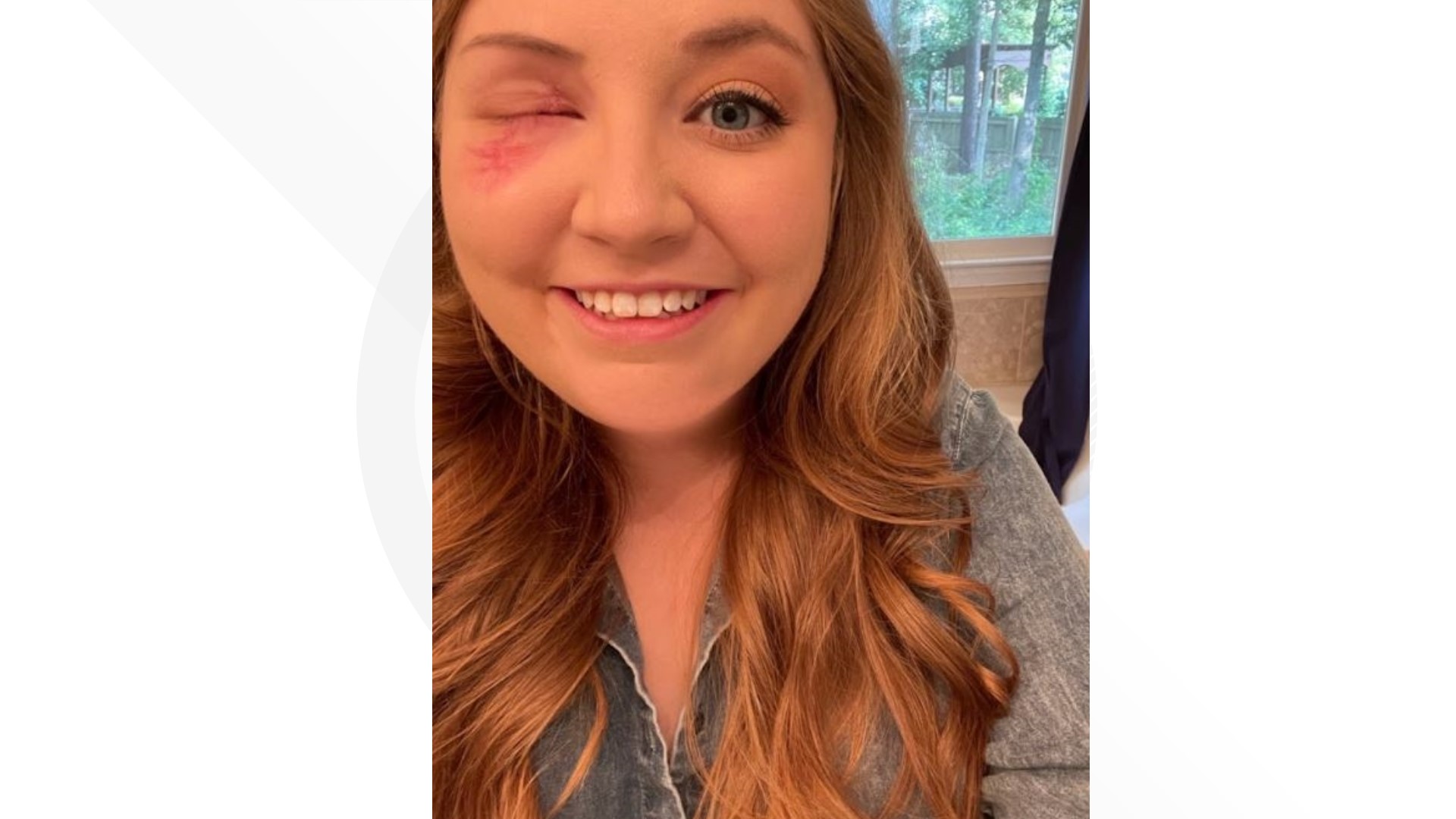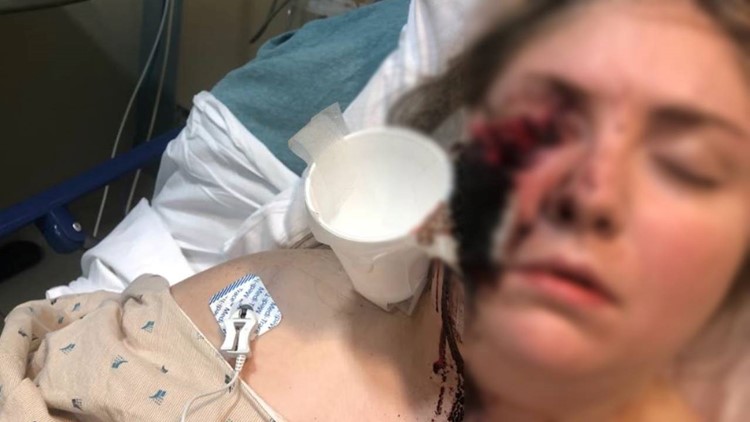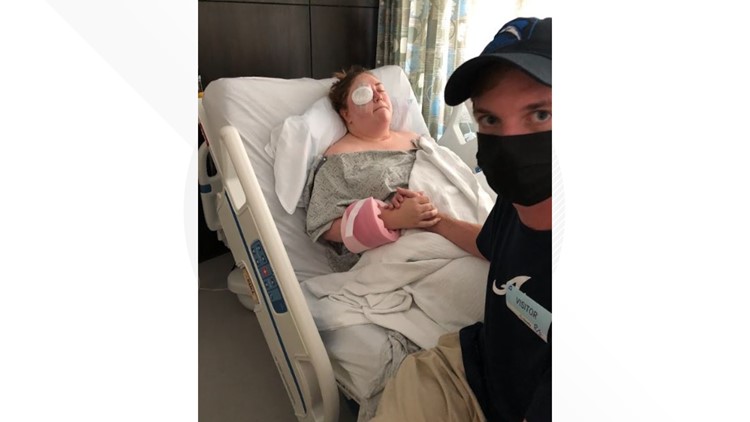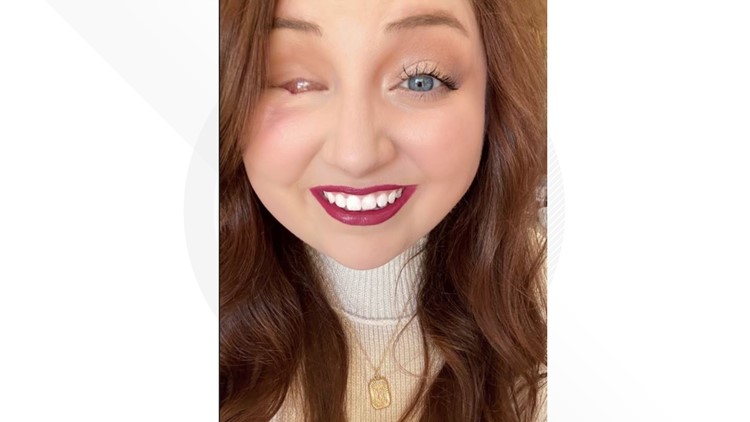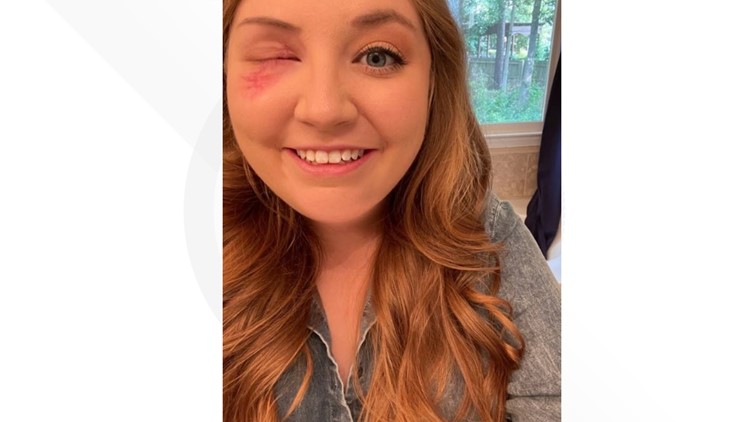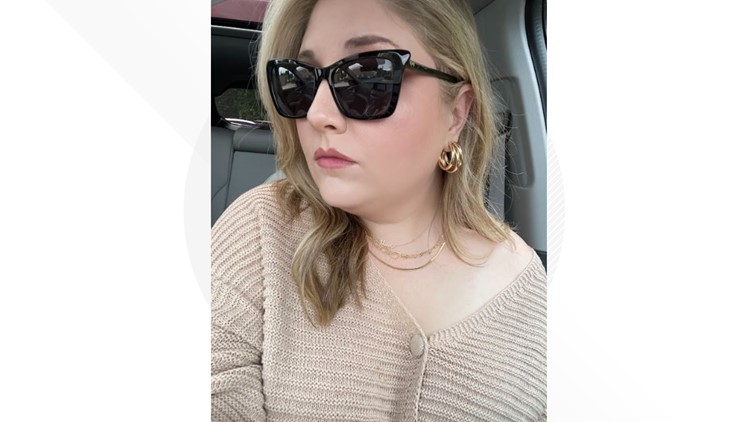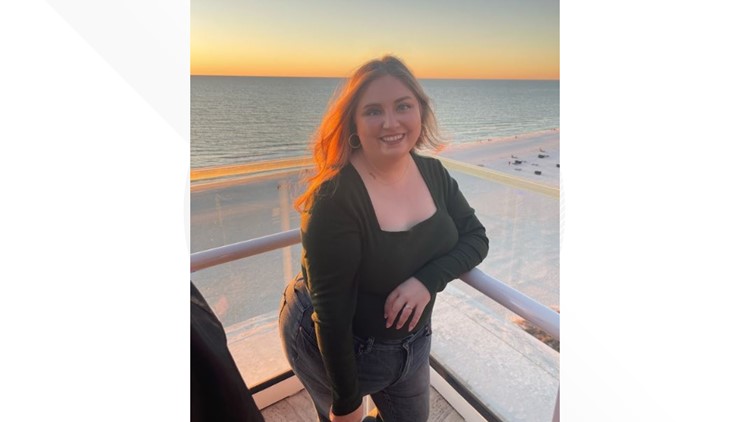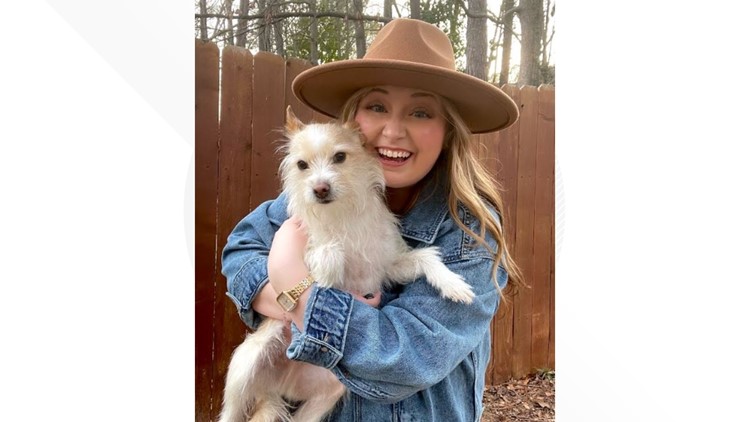COBB COUNTY, Ga. — In a split second, a metro Atlanta woman's life was shattered.
What looked like a minor car accident on South Cobb Parkway stole part of Hannah Oliver's vision. Now she's sounding the alarm, saying people need to open their eyes to the danger right in front of their faces when they get on the road.
She points to her journey of learning how to get behind the wheel again.
"At first, it was really stressful; it was a lot of anxiety," she said.
Her anxiety, she said, is connected to what she's missing and what she's lost.
"I have no depth perception," she explained.
Her easy smile and her sunglasses cover the hard truth of her accident.
"I was in excruciating pain, the worst pain I have ever been in my life," she recalled.
Oliver was wearing sunglasses when she got into a minor fender bender on South Cobb Drive nearly three years ago. August 2021 would change her life forever.
"As soon as the airbag hit my eye, it shattered into pieces," she said.
Airbags deploy at 200 miles an hour with a force of up to 2,000 pounds. That's a hit most sunglasses can't withstand.
"They actually told James, my husband, fiancé at that time, that I had lost my eye - and he had to deliver me that news," she said. "And all I could think at that time was, 'Is he still going to marry me?'"
Oliver lost her right eye just three months before her wedding. After working up the courage to talk about it online, she found out she wasn't alone.
(The gallery below contains what some may consider graphic material. Scroll to read the rest of the story)
Georgia woman's journey of recovery after crash | Photos
"I have connected with so many other people who have lost their eye in the exact same way," she said, "people losing their eye because we are not making sunglasses safer."
Safety is something Georgia Optometric Association Board Member, Optometrist Frank Winkski, thinks about a lot.
The eye doctor said anyone getting behind the wheel with glasses or sunglasses should have polycarbonate lenses in the frame.
"It's basically shatterproof, where it can take a significant impact and not break," he explained.
Polycarbonate material is more expensive than glass or plastic but has been tested rigorously for safety.
"All I could find were sporting or fishing sunglasses,” Oliver said. “But I am a girl's girl, and that was not going to work for me. Why should I have to compromise my safety for style? Why can I not have both?"
Oliver set out to design her own sunglass line in November with shatter-resistant polycarbonate lenses.
"We shouldn't have to think when we put these on our face that we might be partially blind, or blind, or lose our eyesight," she said. "I thought, if I have to wear it, to know it's not going to shatter, then everyone else should. I never thought this was going to happen to me."
Oliver believes polycarbonate lenses should be mandated. It's standard for children’s glasses, but after turning 18, it's an upcharge to get the stronger material in a lens.
"If that had been a regulation, if that had been a law, I would have my vision right now. You would be in the car with a driver who has two eyes and not one," she said.
Now, she is driven to use what she does have for good.
"I feel like this happened to me for a reason. I feel like I can be a voice and change things,” she said. “And I hope through my story that I can change the eyewear industry.”
She offered tips for people purchasing sunglasses. It can be tricky to spot polycarbonate lenses when buying a new pair, but told people to search for a tag. Retailers should list the material on tiny tags attached to the glasses in the store, but that information is not always included.
Oliver advised that people make sure the sunglasses they’re buying are strong before driving with them on their faces.

